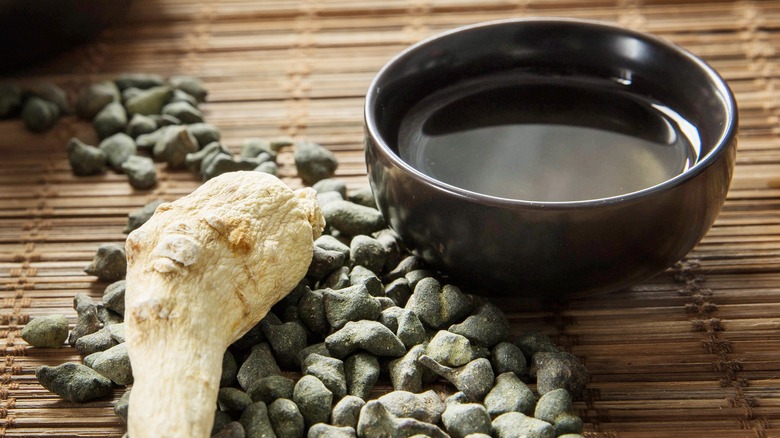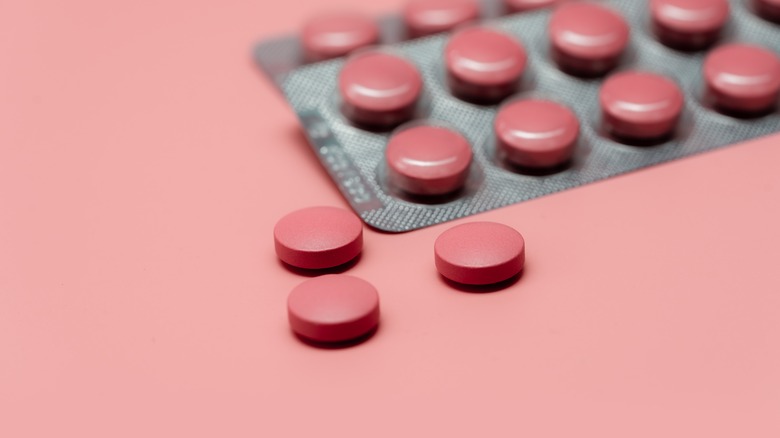Does Ginseng Thin Blood?
Somebody better start playing Stevie Nicks because we're getting witchy! A recent study published in the Journal of General Internal Medicine found that the popularity of herbal medicine has been steadily going up over the last decade, with 20 percent of Americans now using plants for their healing properties. This might have something to do with the fact that in 2021, only 47 percent of Americans expressed that they had trust in pharmaceutical companies (per Statistica). Without question, herbalism is back.
One herb that has been gaining mainstream recognition for its healing properties is ginseng, otherwise referred to as dong quai. In his book, Planetary Herbology, Michael Tierra, acupuncturist and doctor in Oriental medicine and Naturopathy, identifies two different kinds of ginseng; Chinese or Korean (Panax ginseng) and American Ginseng (Panax quinquefolium.) An article published in the Journal of Ginseng Research describes how Chinese ginseng has been considered a cure-all in Traditional Chinese Medicine for over 2000 years. And the Smithsonian's Folklife notes that Native American tribes were using American ginseng for healing long before colonization. Let's take a closer look at ginseng's effect on the body and our health.
The health benefits of ginseng
Ginseng's impressive medicinal properties have been recognized and utilized for thousands of years. In his book, Herbal Medicine: trends and traditions, herbal practitioner Charles W. Kane lists some conditions Panax ginseng is used to treat, including low vitality and symptoms of old age, chronic stress, diminished libido, fatigue from immunological and metabolic dysfunctions, memory loss and dementia, and red blood cell stabilization.
Tierra wrote in Planetary Herbology that Native Americans have long used American ginseng in similar ways. However, it is noted by both Tierra and Kane that American ginseng is considered to have milder effects than Asian ginseng. For that reason, it is generally considered safer for people who are sensitive to stimulants. While ginseng seems like it can certainly do a world of good, there are a few contraindications that might make ginseng a bad fit for you.
Ginseng and your blood
Those of us with sensitivity to stimulants are not the only ones who should take heed. A study published in the Singapore Medical Journal found through animal testing that ginseng can significantly increase the length of time it takes for blood to clot, meaning it acts as a natural blood thinner. While this might be beneficial for some under the right circumstances, another study published in the Annals of Internal Medicine found that ginseng can hamper the effects of blood-thinning pharmaceuticals (also referred to as anticoagulants) like warfarin.
Researchers were reportedly surprised to find that despite ginseng's natural blood-thinning properties, when the herb was administered to people also taking warfarin, it significantly reduced patients' blood levels and the anti-clotting effects of the pharmaceutical. This led the researchers to conclude that medical professionals prescribing warfarin or other anti-clotting drugs need to ask about the patients' use of ginseng.


